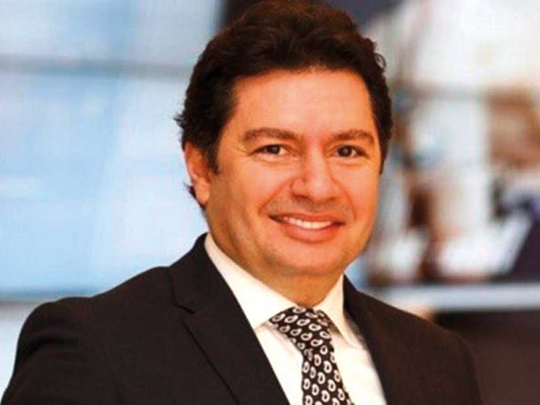
New York: It was Thursday when lawyers for a Turkish banker on trial in Manhattan federal court told the judge that their client would take the stand the next day, to testify on his own behalf.
The banker, Mehmet Hakan Atilla, 47, had been charged with conspiring to violate US sanctions on Iran in a case that has drawn much attention in Turkey, including from that country’s president, Recep Tayyip Erdogan, who has repeatedly criticised the prosecution.
Atilla, who was on a business trip in March when he was arrested at Kennedy International Airport, has been a kind of forgotten man in the case, overshadowed by his co-defendant, Reza Zarrab, a wealthy Turkish-Iranian gold trader.
Zarrab, who is 34 and married to a Turkish pop star, had lived a celebrity life in Turkey. He was arrested in March 2016 on a family trip to Disney World and sent to Manhattan to face trial.
Zarrab secretly pleaded guilty in October and has cooperated with the government. At Atilla’s trial, he emerged as the star prosecution witness, testifying that he had earned as much as $150 million (Dh550.5 million) from the sanctions-busting activity. Prosecutors have said Atilla, a deputy general manager at a Turkish state bank, was also crucial to the scheme. Atilla, testifying on Friday, denied any role in illegal activity.
Atilla’s lawyers have tried to distinguish him from Zarrab, telling the jury that he had been duped and misled by Zarrab and other co-conspirators and never sought or took bribes.
“That’s what the evidence will show, a dedicated, hardworking civil servant caught in the middle of a storm, a swirling, huge international storm of intrigue, lies and massive corruption,” Victor J. Rocco, one of Atilla’s lawyers, told the jury last month.
“Hakan Atilla is just another one of Reza Zarrab’s many victims, a hapless and helpless pawn.”
The Manhattan trial continues to reverberate politically in Turkey, and there were signs that the government was going on the offensive again.
The biggest talking point for the Turkish authorities arose when a defense lawyer in the Manhattan trial cited a letter to a Turkish judge from Fethullah Gulen, the Pennsylvania-based Muslim preacher whom Erdogan accuses of being behind a failed coup last year.
An Istanbul prosecutor released what he said was the letter, saying it was clear evidence that Gulen had intervened to influence the judicial process in Turkey. The Turkish government accuses Gulen of trying to undermine it by orchestrating an investigation into high-level corruption in 2013.
The 2013 Turkish investigation forms the core of the case in Manhattan against Atilla, leading the Turkish government to denounce the trial as politically motivated. Huseyin Korkmaz, one of the investigators at the financial crimes unit that pursued that corruption case, testified against Atilla at his trial.
It was during the cross-examination of Korkmaz in Manhattan that the defence lawyer mentioned the letter, which is said to be from Gulen to a Turkish criminal judge, Mustafa Baser, appealing for the release of prisoners.
The defence lawyer appeared to be seeking to link Korkmaz to the Gulen movement.
Korkmaz, in his testimony, denied any links to the Gulen movement and said he had no knowledge of the letter.
The Turkish news media pounced on the letter’s mention, however, and the chief prosecutor in Istanbul, Irfan Fidan, showed what he said was an electronic copy of it to the daily newspaper Hurriyet. Fidan said it was the “most concrete document” showing an order by Gulen to his followers.
Fidan said a scanned copy of the letter, bearing Gulen’s signature, had been found on a computer confiscated from an editor at a pro-Gulen newspaper. The editor, Fevzi Yazici, is in jail, accused of links to Gulen’s movement, the prosecutor said.
The letter, dated April 19, 2015, appeals to the judge in religious fashion. “I felt the urge for the release of our brothers,” it says.
Fidan said the order appeared to have been followed: After receiving the letter, Baser and another judge, Metin Ozcelik, released the prisoners.
Both judges are also in prison, sentenced in April this year after being accused of membership in a terrorist organisation and abuse of power.
Gulen’s lawyers issued a statement on several pro-Gulen websites saying the letter had been fabricated.
“Mr Gulen did not write such a letter and did not ask for the release of any jailed person,” the statement read. It added that the document was “made-up nonsense, which was produced to be used in the trial in the USA.”












